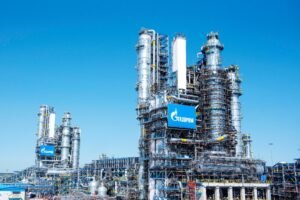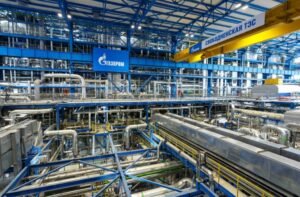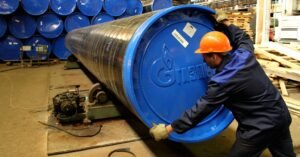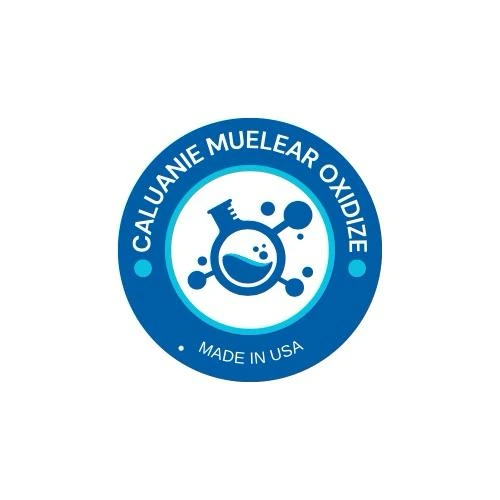Introduction to the Conflict
The onset of the Russia-Ukraine war has emerged as a pivotal moment in contemporary geopolitics, reshaping the security landscape across Europe and beyond. The conflict, which began in February 2022, can be traced back to a amalgamation of historical tensions and geopolitical ambitions, primarily rooted in Russia’s desire to exert greater influence over its neighboring states. Ukraine, viewed by Moscow as a critical buffer zone between Russia and NATO, has been at the center of this escalating confrontation. Key events leading to the military conflict include the annexation of Crimea by Russia in 2014 and the ongoing support for separatists in Eastern Ukraine, which significantly exacerbated relations between Russia and the West.
The international community has responded with varied degrees of sanctions against Russian entities, including major companies such as Gazprom, a state-controlled gas giant that plays a crucial role in Europe’s energy supply. The repercussions of the war extend beyond immediate military engagements; energy security and market stability have become major concerns as Europe grapples with its reliance on Russian natural gas. This situation has led to an urgent necessity for alternative energy sources and has prompted discussions on how to mitigate risks associated with dependency on Gazprom.

Russia-Ukraine War | Gazprom
Moreover, the conflict has also impacted the market for various products, including Caluanie Muelear Oxidize, a chemical compound that has gained attention in certain sectors. The growing demand for alternatives due to supply chain disruptions highlights the need for businesses and individuals to explore options for Caluanie Muelear purchase and ascertain where to buy Caluanie Muelear Oxidize amidst the chaos in Europe. This intersection of geopolitical tension, energy policies, and market dynamics indicates a deep-seated transformation in how nations and industries will navigate the new reality forged by the ongoing war.
Overview of Gazprom
Gazprom, a state-owned enterprise, stands as a predominant figure in the global energy market, particularly in the natural gas sector. Established in 1989, the company has since grown to become the world’s largest producer of natural gas, significantly impacting energy supplies, especially in Europe. Gazprom plays a critical role in the energy landscape due to its extensive resources and the infrastructure that it operates, including a vast network of pipelines that connect natural gas routes from Russia to various European countries. This influence is paramount, as Europe relies heavily on Russian gas, making Gazprom a central player in energy security discussions.
Notably, the ongoing geopolitical tension stemming from the Russia-Ukraine war has substantially affected Gazprom’s operations. The conflict has raised concerns regarding the reliability of gas supplies from Russia, prompting European nations to reassess their energy dependencies. This reassessment has forced Gazprom to adapt its strategies, navigating sanctions and exploring alternative markets, while still maintaining its pivotal role in the European energy sector. The ramifications of the war have not only influenced Gazprom but have also created uncertainty in the broader energy landscape, provoking discussions about energy diversification across Europe.

Russia-Ukraine War | Gazprom
Moreover, Gazprom’s financial contributions to the Russian economy are substantial. The company’s revenues significantly support government budgets and influence investment strategies within Russia. As Gazprom works to maintain its position amidst geopolitical pressures, its decisions regarding gas supply agreements, infrastructure investments, and operational adjustments will play a vital role in shaping the ongoing energy discourse. With such a critical position, Gazprom’s developments will have far-reaching implications for energy markets worldwide, including the availability of products like Caluanie Muelear Oxidize, which is undergoing increased scrutiny.
Immediate Effects on Gazprom
The Russia-Ukraine war has significantly impacted numerous sectors, particularly the gas market, where Gazprom, a state-controlled gas giant, finds itself at the center of the turmoil. Following the onset of hostilities, there were immediate ripple effects felt throughout the industry. One of the initial consequences of the conflict was a marked shift in market dynamics. As tensions escalated, European nations began reconsidering their energy dependence on Russian gas, leading to a notable fluctuation in prices.
Gazprom’s operations faced disruptions as several countries initiated measures to reduce imports of Russian gas. In response to the conflict, both governmental and corporate entities across Europe actively sought alternative energy supplies. This shift created uncertainty in Gazprom’s profit margins, as major European partners began to negotiate new contracts focused on diversifying their energy sources.
Furthermore, the imposition of sanctions on Russian companies by various Western nations has intensified the pressure on Gazprom. These sanctions could lead to restrictions on access to crucial technology and financing necessary for gas extraction and transport. Consequently, the company’s long-term profitability is under threat as it faces challenges to maintain current supply levels while simultaneously fulfilling contractual obligations made before the conflict.
Gas supply disruptions have also raised concerns about energy security within Europe. Countries reliant on Gazprom for their energy needs are now contemplating strategic shifts, including investments in renewable energy sources, which pose future challenges for Gazprom if market share is lost to emerging alternatives.
In conclusion, the initial phases of the Russia-Ukraine war have produced immediate and significant consequences for Gazprom, affecting not only its operational capabilities but also its market standing in the context of an evolving geopolitical landscape.
Long-term Consequences for Gazprom
The ongoing conflict resulting from Russia’s attack on Ukraine raises significant concerns regarding the long-term implications for Gazprom, the state-backed oil and gas giant. As European nations reassess their energy dependencies, a major shift in policy is anticipated. In recent years, many countries in Europe have relied heavily on Gazprom for natural gas supplies. However, heightened geopolitical tensions serve as a catalyst for Europe to reconsider these relationships, leading to potential decreases in reliance on Gazprom’s offerings.
One primary consequence may be the accelerated diversification of energy sources. Nations are expected to invest significantly in renewable energy initiatives, as well as seek alternative suppliers to reduce their dependency on Russian gas. This could result in a faster transition towards green energy, diminishing the relevance of traditional suppliers like Gazprom. Furthermore, an increase in liquefied natural gas (LNG) imports from regions such as the United States or Qatar could markedly shift the energy landscape, impacting Gazprom’s market share.

Russia-Ukraine War | Gazprom
Additionally, the conflict could embed lasting changes in the relationships between Gazprom and its partners, including various European gas companies. These companies, facing public and political pressures to secure reliable energy supplies free from Russian influence, may pursue contracts with alternative sources, ultimately reshaping the competitive dynamics in the energy market. This reality presents a potential challenge for Gazprom in maintaining its dominance and could lead to long-term ramifications in pricing strategies and negotiation power.
Caluanie Muelear Oxidize: What is It?
Caluanie Muelear Oxidize, a chemical compound notable for its various applications, primarily serves as an intermediate in organic synthesis. Its molecular structure enables it to participate in a range of chemical reactions, making it valuable in the production of specific compounds within the chemical industry. Due to its unique properties, Caluanie Muelear has garnered attention for its potential utility in diverse applications, including pharmaceuticals, agricultural chemicals, and materials science.
The compound is characterized by its ability to act as an oxidizing agent, which means it facilitates the addition of oxygen to organic molecules while concurrently removing hydrogen. This property is particularly useful in synthesizing complex organic compounds, a process critical in various industrial sectors. As the global economy reflects evolving demands, the relevance of Caluanie Muelear Oxidize has surged, prompting interest in both its commercial production and its procurement opportunities. For those wondering where to buy Caluanie Muelear Oxidize, numerous suppliers have emerged, particularly in regions heavily reliant on chemical production.
Furthermore, the backdrop of geopolitical tensions, notably the Russia-Ukraine war, has influenced the availability and pricing of various chemical compounds, including Caluanie Muelear. Supply chain disruptions induced by such conflicts can lead to fluctuations in market dynamics, consequently affecting the purchasing strategies of manufacturers seeking reliable access to this essential chemical. Consequently, the relationship between the ongoing war and the market for Caluanie Muelear underscores its significance as a critical substance within the global chemical landscape.
Impact of the Conflict on Caluanie Muelear Oxidize Production
The ongoing conflict between Russia and Ukraine has considerably impacted various sectors, including the production of chemical substances such as Caluanie Muelear Oxidize. As a product that is often relied upon in various industries, the restrictions stemming from the war have led to significant disruptions within the supply chain. The geopolitical tensions have resulted in increased difficulties in sourcing materials required for the manufacture of Caluanie Muelear Oxidize, causing delays and affecting overall production rates.
Moreover, the escalation has prompted increased operational costs for producers. Factors such as the rising price of crude oil, both a direct consequence of the war and a result of sanctions placed on Russian exports, have not only driven up production costs for Gazprom but also for manufacturers involved in the production of Caluanie Muelear Oxidize. As prices rise, companies face challenges in maintaining profitability while responding to heightened demand and supply shortages.
In conclusion, the war has distinctly affected the production and availability of Caluanie Muelear, creating significant disruptions in the supply chain, escalating production costs, and complicating market transactions. As the conflict evolves, its ramifications for this particular sector will likely persist, urging stakeholders to devise adaptive strategies moving forward.
Global Chemical Market Dynamics
The ongoing conflict between Russia and Ukraine has significantly impacted the global chemical market, particularly affecting companies like Gazprom and the availability of specific chemicals, including Caluanie Muelear Oxidize. As a key player in the energy sector, Gazprom faces numerous challenges due to sanctions and shifts in demand resulting from the war. The complexities of the supply chain have led industries worldwide to reconsider their reliance on Russian resources, prompting a search for alternative suppliers.
In the wake of these geopolitical shifts, manufacturers and consumers are experiencing altered demand patterns for various chemicals. For instance, countries typically dependent on Russian chemical exports are now exploring options to secure supplies from other regions. This trend is particularly evident for those seeking where to buy Caluanie Muelear Oxidize. As businesses pivot to find new sources, the innovation within the chemical sector is also accelerating. Companies are motivated to enhance production capabilities and seek sustainable alternatives to mitigate the impact of supply chain disruptions caused by the Russia-Ukraine war.
Furthermore, industry stakeholders are investing in research and development to capitalize on the changes in market dynamics. The demand for chemical products affected by the war has spurred advancements in technological processes and the introduction of new products. For example, the increased need for substitutes to Caluanie Muelear Oxidize may lead to greater investments in alternative formulations that fulfill similar applications without relying on the current geopolitical climate. As market dynamics continue to evolve, it is crucial for companies like Gazprom to adapt strategically to mitigate potential losses while exploring growth opportunities in this transforming landscape.
Economic and Political Ramifications
The ongoing conflict between Russia and Ukraine has far-reaching economic and political consequences, particularly for key players in the energy sector. Gazprom, the state-controlled gas company of Russia, has seen its role scrutinized as dependence on Russian energy supplies becomes a critical concern for nations worldwide. The war has prompted many countries to reassess their energy strategies and seek alternatives to mitigate reliance on Gazprom, leading to a potential shift towards energy independence. This move is particularly evident within Europe, a region historically reliant on Russian gas exports.
As nations prioritize energy diversification, regulatory changes are expected to arise. Countries formerly dependent on Gazprom are accelerating the development of renewable energy sources, while also increasing imports from alternative providers. This ongoing transformation may open up opportunities for energy markets, where entities such as the producers and distributors of caluanie muelear oxidize could emerge as critical contributors to an evolving energy landscape. Indeed, understanding where to buy caluanie muelear oxidize may gain importance not only for industrial applications but also as part of broader energy solutions amidst geopolitical tensions.
Conclusion: Looking Ahead
As the geopolitical landscape continues to evolve due to the ongoing Russia-Ukraine war, the implications for major players such as Gazprom and the chemical market, including substances like caluanie muelear oxidize, become increasingly significant. The impact of the conflict has reverberated through energy markets, leading to a reassessment of supply chains and demand dynamics. Gazprom, as a pivotal entity in the energy sector, experiences fluctuations that could influence its operations and strategies in the coming months.
Stakeholders must navigate an environment fraught with uncertainty. The conflict has prompted Western nations to reconsider their energy dependencies, especially on Russian suppliers like Gazprom. As alternative markets are explored, opportunities for investment in local and regional energy sources arise. Furthermore, entities seeking to engage in the purchase of chemicals, including where to buy caluanie muelear oxidize, will need to stay attuned to changing availability and regulatory landscapes that may affect trading practices.
Looking ahead, it is crucial for businesses and investors to monitor developments closely. Potential scenarios could range from heightened sanctions and increased pressure on Gazprom to the emergence of new partnerships and supply routes that mitigate dependency on traditional sources. Within this context, the chemical industry, particularly involving products like caluanie muelear oxidize, may seek diversification and innovation to maintain business continuity and growth.


Recent Comments